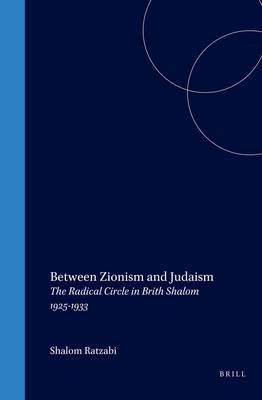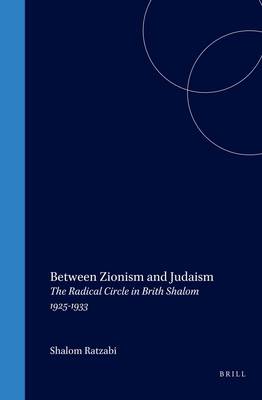
Je cadeautjes zeker op tijd in huis hebben voor de feestdagen? Kom langs in onze winkels en vind het perfecte geschenk!
- Afhalen na 1 uur in een winkel met voorraad
- Gratis thuislevering in België vanaf € 30
- Ruim aanbod met 7 miljoen producten
Je cadeautjes zeker op tijd in huis hebben voor de feestdagen? Kom langs in onze winkels en vind het perfecte geschenk!
- Afhalen na 1 uur in een winkel met voorraad
- Gratis thuislevering in België vanaf € 30
- Ruim aanbod met 7 miljoen producten
Zoeken
€ 413,95
+ 827 punten
Omschrijving
This work provides a vivid picture of the dichotomy between the ideology preached by the radical circle of the Brith Shalom Society and the nationalism of early twentieth-century Palestine. Many considered the Brith Shalom Society representative of the spiritual trend of Zionism.
This important book examines the aspirations and cultural sources of these men from Central Europe who met in Palestine as members of the Brith Shalom Society during the first half of the twentieth century, in the context of the political reality of a pre-independent Palestine and the new state of Israel.
The fact that this circle included well-known personalities, such as Samuel Hugu Bergmann, Gershom Scholem, Erenst Simon, Hans Kohn and ecumenists, such as Martin Buber and Judah L. Magnes, none of whom was a politician in the ordinary sense, makes this study all the more fascinating and compelling.
This important book examines the aspirations and cultural sources of these men from Central Europe who met in Palestine as members of the Brith Shalom Society during the first half of the twentieth century, in the context of the political reality of a pre-independent Palestine and the new state of Israel.
The fact that this circle included well-known personalities, such as Samuel Hugu Bergmann, Gershom Scholem, Erenst Simon, Hans Kohn and ecumenists, such as Martin Buber and Judah L. Magnes, none of whom was a politician in the ordinary sense, makes this study all the more fascinating and compelling.
Specificaties
Betrokkenen
- Auteur(s):
- Uitgeverij:
Inhoud
- Aantal bladzijden:
- 476
- Taal:
- Engels
- Reeks:
- Reeksnummer:
- nr. 23
Eigenschappen
- Productcode (EAN):
- 9789004115071
- Verschijningsdatum:
- 20/12/2001
- Uitvoering:
- Hardcover
- Formaat:
- Genaaid
- Afmetingen:
- 162 mm x 244 mm
- Gewicht:
- 948 g

Alleen bij Standaard Boekhandel
+ 827 punten op je klantenkaart van Standaard Boekhandel
Beoordelingen
We publiceren alleen reviews die voldoen aan de voorwaarden voor reviews. Bekijk onze voorwaarden voor reviews.









